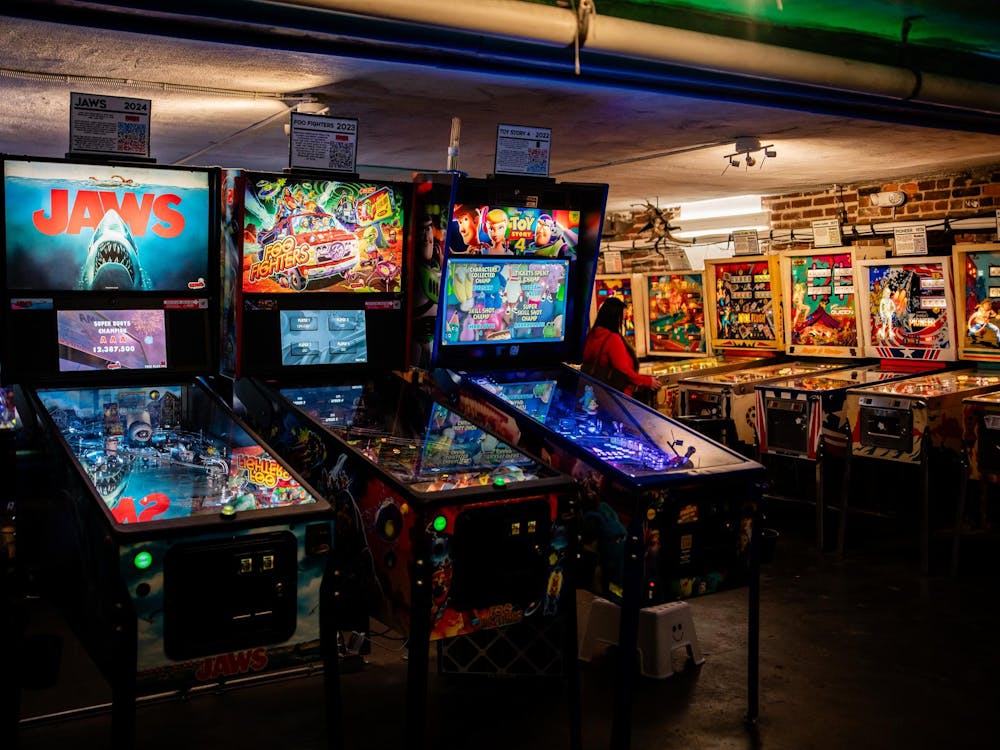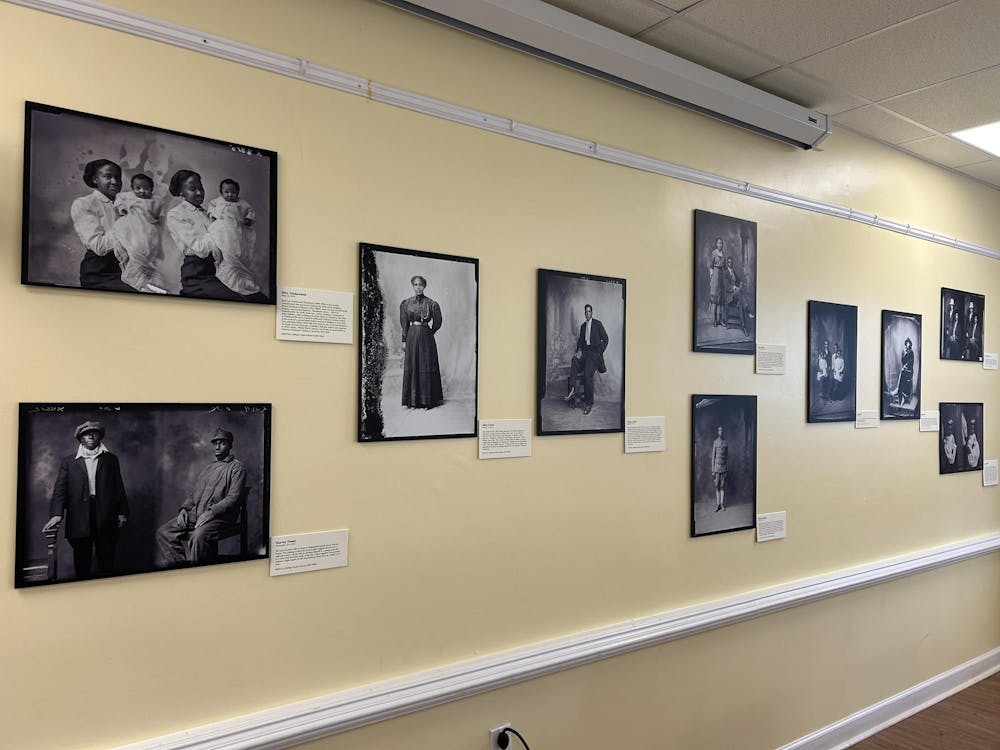“Old Staff, New Variant — please wear a mask” reads a paper sign on the front door. Stacks of dusty paperbacks and cloth-bound volumes surround the front desk. Copies of “Das Kapital” and books on postmodern feminism lie next to biographies of Lincoln and histories of the U.S. Constitution. A stool in front of the cash register bears the logo of the Salem Red Sox, a Virginia minor league baseball team. Everything about Heartwood Books on Elliewood Avenue evokes a sense of the past and the unique identity of its owner Paul Collinge.
Customers can usually find Collinge rearranging books, giving a recommendation and, if he’s not wearing a mask, offering a welcoming smile. Collinge has run the store with his friend Art Collier for nearly forty years, providing a source of community for both its customers and employees.
Second-year College student MaeEllen Megginson enjoys asking Collinge and Collier for book recommendations and likes the small-town feel that the two friends bring to the store.
“It’s nice to see the same faces there every time,” Megginson said. “It’s one of the things that makes a big school feel smaller.”
Collinge started dealing in books in 1969 while he was a student at Georgetown University. He studied philosophy before dropping out to help start a non-profit bookstore that specialized in anti-Vietnam War material. Eventually, he moved to Charlottesville and opened Heartwood Books in 1975.
The store still reflects Collinge’s philosophical and political bent. Shoppers will find an eclectic mix of books lining the aisles, including older academic and political books that are hard to find in mainstream bookstores. Collinge says students often read famous books by classic authors like Virginia Woolf or Walter Scott in their courses, but could benefit from reading their more obscure works as well.
“I tell people sometimes, we specialize in books that you should have read, but didn’t,” Collinge said.
Aside from the countless novels and pieces of literature housed in the store, Heartwood Books also holds emblems of Charlottesville’s past. A paper flier near the front door shows what Elliewood Avenue looked like back when the bookstore first opened. The flier shows a sketch of a quaint tree-lined street with student housing and a parking lot where Crozet and the Biltmore now stand.
Collinge remembers the Corner having more of a small-town feel where the University would mix with the surrounding area. Locals would shop for groceries or go to the laundromat and stop at stores like Heartwood Books along the way.
Over the years, however, Collinge says that the Corner has become more separate from the Charlottesville community.
“It gradually became more of a captive of the University,” Collinge said. “And the local townspeople [don’t] come here.”
The 1975 flier also shows two other bookstores that have since closed, part of a national trend of bookstores closing. From 1998 to 2019, the number of brick-and-mortar bookstores in America has been roughly cut in half.
“Most of that is because [of] a big drop in the actual reading of books,” Collinge said. “And number two, there's a feeling…that you can always get the book.”
Collinge says online booksellers have made it cheap and easy for students to find required books, and made it less likely for students to search for books they haven’t heard of. During the COVID-19 pandemic, he was forced to move out of the store and significantly downsize the business.
“[The store] really is, at this point, kind of limping along,” Collinge said, “But you know, I make a little bit of money on it. And Art, who has worked for me for about 40 years, still has a job. But, you know, I'm 73, and he's 69. So we're not going to do this for much longer.”
Heartwood’s rare book business has been hit especially hard, according to Collinge. In spite of this challenge, he hopes to recoup rare book sales moving forward, as this is the part of the business he has been most passionate about over the years.
“I've had a lot of interesting stuff,” Collinge said. “I helped handle a collection that had the first printing of Jefferson's Notes on the State of Virginia, which was very rare.”
While the outlook for independent booksellers like Heartwood Books may be bleak, Collinge says young people are still reading a lot. National polls reflect this trend, showing that general readership has declined over the last decade but remained more stable than the number of closing bookstores may suggest. Collinge believes most of his sales are now driven by young women who are students at the University. In that sense, student purchasing power seems like it will significantly impact the fate of the store in the future.
Like Megginson suggests, Heartwood is not just a charming novelty but an important part of student life. The store offers a home for used books that may otherwise be thrown away and exposes students to books they would not often encounter in their courses.
So whether students are shopping for a required book for class, picking out pleasure reading for the fall, or purchasing a rare book as a gift, Heartwood Books continues to be an integral part of the Charlottesville community.







